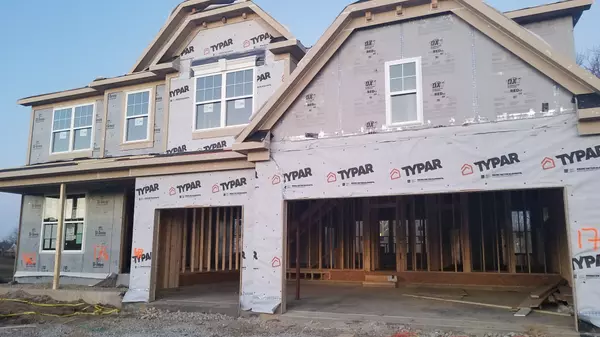
What is Title Insurance?
Title insurance is an essential component of any real estate transaction, offering protection to both buyers and sellers against potential legal issues that may arise due to problems with the property's title. By providing a thorough examination of the property's history and guaranteeing a clear title, title insurance plays a vital role in ensuring a smooth and secure real estate transaction. In this article, we will delve deeper into the concept of title insurance, its significance for buyers, sellers, and lenders, and discuss some key terms associated with this crucial aspect of real estate. Clearing the cloud: Understanding the impact of cloudy title in real estate transactions Title: Clearing the Cloud: Understanding the Impact of Cloudy Title in Real Estate Transactions In the realm of real estate transactions, the concept of "cloudy title" can pose significant challenges and risks for both buyers and sellers. A cloudy title refers to any issue or defect in the ownership history of a property that could potentially hinder the transfer of clear ownership rights. From unresolved liens and encroachments to undisclosed easements and boundary disputes, these title defects can complicate the sale process and even lead to legal disputes down the line. The adverse effects of cloudy title Cloudy title can have various adverse effects on a real estate transaction: Delay or denial of financing: Lenders typically require clear title before approving a mortgage loan. If title issues arise during the due diligence process, lenders may hesitate to provide financing, delaying or even jeopardizing the transaction. Legal challenges: Title defects can result in legal disputes between parties involved in the transaction, including buyers, sellers, lenders, and previous property owners. These disputes can lead to costly litigation and potentially prevent the sale from proceeding. Unforeseen expenses: Resolving title issues often requires time-consuming and costly legal procedures, such as title searches, surveys, and corrective measures. Buyers may be required to bear these expenses, impacting their overall budget for the purchase. Loss of investment: In severe cases, unresolved title defects may render the property unsellable or significantly diminish its value. Buyers may ultimately decide to walk away from the transaction, resulting in financial losses for sellers and missed opportunities for buyers. The role of title insurance in clearing up title Title insurance serves as a crucial safeguard against the risks associated with cloudy title. Unlike other types of insurance that protect against future events, title insurance protects against past defects or claims that may arise after the property is purchased. Here's how title insurance can help mitigate issues related to cloudy title: Comprehensive title search: Before issuing a title insurance policy, the title insurance company conducts a thorough search of public records to uncover any existing title defects, liens, or encumbrances. This process helps identify potential issues early on, allowing parties to address them before closing. Protection against loss: If a title issue arises after the purchase, title insurance provides coverage for losses incurred as a result of covered defects or claims. This protection extends to legal fees, court costs, and any financial losses suffered by the insured party. Peace of mind: By obtaining title insurance, buyers and lenders can proceed with confidence, knowing that they are protected against unforeseen title defects or challenges. Title insurance policies provide peace of mind and reassurance throughout the real estate transaction process. Title insurance for buyers, sellers, and lenders Title insurance benefits all of the parties in a real estate transaction in different ways. Buyers, sellers, and lenders each have certain nuances in which title insurance can affect the process. Buyers and title insurance For homebuyers, purchasing a property is one of the most significant financial investments they'll make in their lifetime. However, without the protection of title insurance, buyers may unknowingly inherit a host of risks and liabilities associated with the property's title. Here's why title insurance is crucial for buyers: Safeguarding Against Hidden Title Defects Title insurance provides buyers with protection against unforeseen title defects that may arise after the purchase. These defects could include undisclosed liens, easements, encroachments, or other issues that could threaten their ownership rights. By obtaining title insurance, buyers can rest assured that their investment is safeguarded against potential financial losses resulting from these hidden defects. Ensuring a smooth closing process Title insurance plays a vital role in facilitating a smooth and efficient closing process. Before issuing a policy, the title insurance company conducts a comprehensive title search to identify any existing title defects or claims against the property. Resolving these issues before closing helps prevent delays and ensures that buyers can take ownership of the property with confidence. Providing reassurance Perhaps most importantly, title insurance provides buyers with reassurance throughout the homebuying process. Knowing that their investment is protected against unforeseen title issues allows buyers to proceed with confidence and focus on enjoying their new home. With title insurance in place, buyers can rest assured that their ownership rights are secure and protected against potential risks. Sellers and title insurance Selling a property involves more than just finding a willing buyer and negotiating a price. Sellers also have a legal obligation to convey clear and marketable title to the buyer. Here's why title insurance is essential for sellers: Resolving title issues proactively Even sellers with the best intentions may be unaware of certain title defects or claims against their property. By obtaining title insurance, sellers can proactively address any potential issues before listing their property for sale. Resolving title issues upfront helps prevent delays and complications during the closing process and ensures a seamless transaction for all parties involved. Protecting against future claims Title insurance provides sellers with protection against future claims or challenges to the title of their property. If a title issue arises after the sale, the title insurance policy covers the seller's legal defense costs and any financial losses incurred as a result of covered claims. This protection offers sellers peace of mind knowing that they are shielded from potential liabilities associated with the property's title. Enhancing marketability and value Having title insurance in place can enhance the marketability and value of the property in the eyes of potential buyers. Buyers are more likely to feel confident in their purchase knowing that the property's title is backed by a reputable title insurance company. Additionally, title insurance can help expedite the closing process and make the property more attractive to buyers, ultimately leading to a smoother and more successful sale. Lenders and title insurance Lenders play a critical role in real estate transactions, providing financing to buyers and ensuring that their investments are protected. Title insurance is a vital tool for lenders to mitigate risks and safeguard their interests in the following ways: Protecting the lender's investment Lenders typically require borrowers to obtain title insurance as a condition of the mortgage loan. This requirement helps protect the lender's investment by ensuring that the property's title is free from defects or encumbrances that could jeopardize their security interest in the property. In the event of a title issue, the lender's title insurance policy provides coverage for their financial losses, including the outstanding loan amount. Preventing losses due to title defects Title insurance helps lenders avoid potential losses resulting from title defects or challenges that may arise after the loan is issued. By conducting a thorough title search and obtaining title insurance, lenders can identify and address any existing title issues before closing. This proactive approach minimizes the risk of future claims against the property's title and protects the lender's financial interests. Streamlining closing Having title insurance in place can streamline the closing process for lenders by providing assurance that the property's title is clear and marketable. With title insurance, lenders can proceed with confidence knowing that their investment is protected against unforeseen title issues. This confidence helps expedite the loan approval process and ensures a smoother and more efficient transaction for all parties involved. What is an owner's title policy? As mentioned earlier, an owner's policy is a type of title insurance that directly benefits the buyer. This policy offers comprehensive protection against any potential claims or disputes arising after the property's purchase. It typically covers issues such as undisclosed liens, forged documents, undisclosed heirs, or mistakes in public records. An owner's policy provides buyers with financial security and the confidence that their investment in the property is protected. How much does title insurance cost? The cost of title insurance can vary depending on several factors, including the location of the property, the purchase price, and the coverage amount. On average, title insurance premiums range from 0.5% to 1% of the purchase price of the property. For example, if you're purchasing a home for $300,000, you might expect to pay between $1,500 and $3,000 for title insurance. Several factors contribute to the cost of title insurance: Property Value: The purchase price of the property directly influences the cost of title insurance. Generally, the higher the value of the property, the higher the premium will be. Location: Title insurance rates can vary by state and even by county within the same state. Areas with higher levels of title-related risks, such as dense urban areas or regions prone to property disputes, may have higher premiums. Policy Type: There are two types of title insurance policies: lender's title insurance and owner's title insurance. Lender's title insurance protects the lender's interests in the property and is typically required as part of the mortgage process. Owner's title insurance protects the buyer's interests and is optional but highly recommended. The cost of each type of policy may differ. Title Examination and Underwriting: The title insurance company conducts a thorough examination of public records to identify any existing title defects or issues. The complexity of the title search and underwriting process can affect the cost of the policy. Endorsements: Additional endorsements or coverage enhancements may be available to address specific risks or concerns related to the property's title. Opting for additional endorsements can increase the overall cost of title insurance. Is title insurance worth it? Overall, while title insurance premiums represent an upfront cost in the real estate transaction, they provide invaluable protection and peace of mind to buyers, sellers, and lenders alike, safeguarding against potential risks and liabilities associated with the property's title. --- Disclaimer: The information provided in this blog is for general informational purposes only and should not be considered as legal advice. For specific guidance regarding title insurance or any real estate matters, consult with a qualified professional.
Categories
Recent Posts










